We are developing the social individualist meta-context for the future. From the very serious to the extremely frivolous... lets see what is on the mind of the Samizdata people.
Samizdata, derived from Samizdat /n. - a system of clandestine publication of banned literature in the USSR [Russ.,= self-publishing house]
|
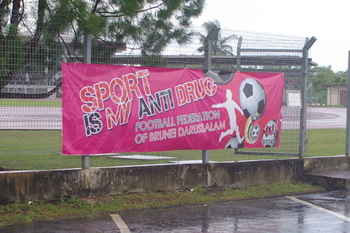 If sport were a drug, there would be no option but to institute a mandatory death penalty for people partaking in it, and nobody would want that If sport were a drug, there would be no option but to institute a mandatory death penalty for people partaking in it, and nobody would want thatMy apologies for the blurriness of the first picture. I find that people in uniforms in secure areas of airports can lack a sense of humor when I start taking photographs, so I try to do it surreptitiously. This can sometimes detract from the quality of the photographs.
Texan wine is actually quite good – on a par with Californian
– Philip Chaston
In response to a recent response of the economic collapse of Portugal, commenter EndivioR had the following to say:
I lived in Spain during Gonzalez and Aznar. Foolishly, as I saw motorways roll out across the plains, buildings shoot up, high-speed trains whistle past, and cool graphics appear on TV news intros, I thought that some seriously good country management was going on. Now I realise that “economic miracle” means what it says. A miracle is something that defies the laws of nature. Spain is a mirage floating over the quicksand of unredeemable loans. I hope there are still people around there who know how to steer a donkey.
Oddly enough, Spain and Portugal remind me of something I have seen before. In the 1990s, we had a telco bubble. In mobile telephony, most places had two or three digital 2G mobile networks built. The spectrum was usually obtained cheaply by these companies, and the resultant networks were valuable, and useful, and there was a good return on the capital put up to build them. One or two companies made enormous amounts of money by figuring out something was happening early in the piece, building suddenly immensely valuable companies, and selling out, often to incumbent telcos who had read things less well than they had. Telecoms equipment manufacturers made huge amounts of money as their business was suddenly much bigger than it had been before. Other people got excited by this, and governments got excited by this, and there was an enormous piling in by new entrants to this industry. The equipment manufacturers (many government backed) wanted to follow up their first round of sales with subsequent rounds, and there was massive pressure to keep building. Many of the people and organisations who entered this business late were, shall we say, more dubious than some of the earlier ones. In many cases, they were the well connected rather than the prescient.
One thing that came from this, towards the end of the bubble, was a lot of what is known as “vendor finance”. Someone probably well connected wants to make money by building a telco, and probably selling that company on to someone else once it was built and had a customer base. A telecoms equipment manufacturer would lend the new telco money which the telco would then use to pay the manufacturer to build the network. This was all great as long as the network could be build, credit remained cheap, the network could gain customers and profits could be gained from these customers. In short, it was great as long as the bubble continued. Lots of people were making money as long as the bubble continued, and didn’t really care how it continued.
Of course, few of these things remained true. Credit became expensive, and what customers newer telcos could gain were very low value customers. For a time, mobile phone companies were valued simply on the number of customers, with little attention paid as to whether they were good customers. However, this eventually stopped, as it had to. Credit became expensive. Vendor financed networks defaulted on their debts and went bust. The companies that did the vendor financing went bust too. Bye bye Lucent. Bye bye Onetel. Amazingly, the banking system as a whole did not go bust for more than five years after this.
Which makes me think of Spain and Portugal. These countries joined the EC (as it was then) in the early 1980s after many decades of authoritarian government: poor, and woefully lacking in infrastructure. They lacked the capital markets, the expertise and the international connections to build modern infrastructure themselves, but there was the potential to catch up rapidly if they were exposed to international markets and international practice.
The avenue through which they did this was the EC and later EU, of course. The benefits of rejoining the international economy were immense, and EU aid and expertise did help them and pay for infrastructure. The scale of this in the 1980s and early 1990s was surprisingly modest, actually, and the infrastructure that was built was fairly hardly argue with. Motorways from Madrid to Malaga, or Lisbon to Porto, eminently sensible, and the economic value created by the motorways obviously exceeded costs. Given that they were and are tolled, a fair bit of this value was even captured by the people who built and financed them. Looking back now, it seems fairly obvious that market mechanisms could have build the 1980s and 1990s developments. The sad thing is that market mechanisms did not build them, and Spain and Portugal instead got used to the EU way of doing this. Money flowed from France and (particularly) Germany and French and German banks via the EU institutions, and this money flowed back to France and Germany to the companies who did a lot of the work in building them. Vendor financing, shall we say. No particular harm was done, as long as the infrastructure being built was actually economically sensible.
However, the French and Germans and French and German banks, and the Spanish and the French and German engineering companies got used to this. The inevitable greasing of wheels and protection and paying off of the well connected created a while class of people whose interests were in this continuing, long after anything was economically sensible. So in the late 1990s and 2000s, Spain and Portugal got huge networks of motorways in absurd and pointless places. (One evening several years ago, I drove in the evening along the old road from Regua to Vila Real in Portugal. It was a scary, winding, narrow single carriageway. The next day I discovered that there was a new road, which was a beautiful dual carriageway, four lane motorway, apparently being used only by me). These later ones tend not to be tolled, as if you were to toll them it would become immediately obvious how few cars were using them and how economically pointless they are. Then, things got nuttier. Spain got an enormous network of high speed trains. These are particularly good from the EU aid point of view, as there are two different European technologies – one French and the other German – and the contracts can alternate between the two. Pointless, but great in terms of being financed by German banks and then bought from the Germans. Then Spain got the world’s largest system of wind farms. The further we went along, the more pointless the things being built actually became. We started more or less with sense, but because the incentives were all wrong, this evolved into madness.
So here we are. The EU vendor finance bubble has ended. The French and (particularly) the Germans created this mess, because their banks and their industrial companies were benefiting in the short term. Blaming the Spanish is beyond the point. The Spanish let the Germans lend them money and then build them stuff with the lent money, and they were foolish to do this, but it appeared they were having a rapid miracle of modernity, and given the history, I can see why they wanted to believe this. The German banks are screwed, after doing the bidding of the German government. If the German government has to bail them out, well they created the mess.
Except, the political class made the mess. As that political class keep wining and dining one another as they discuss how to make things worse fix things, it is actually the German taxpayer doing the bailing out. The mess is certainly not the fault of the ordinary bloke making Volkswagens in the factory in Wolfsburg, but he has to pay for it. Hopefully the anger of such people is with the German political class and the European political class, rather than with “The Spanish” or “The Southern Europeans” amorphously, because it is the political class who are responsible.
In the case of the vendor financed telco bubble that I discussed earlier, the companies that did the lending and the borrowing generally both went bankrupt, their assets gobbled up by new and more sensible companies. In the case of governments that have done the same thing, cleaning up is messier. The German and Spanish political classes are not just going to go away, however much we wish they would.
Perhaps there is anger with the German political class. Support for the traditional Christian Democrats and Social Democrats appears to be in serious decline, which has led to support for the Green party approaching 30%. Which is not going to help. It is hard to see any scenarios in which we are not totally fucked.
“(The legislation) does not apply by reason of a relevant step taken by the Independent Parliamentary Standards Authority (IPSA) in relation to a member of the House of Commons”.
– Section 554E (8) of the most recent Finance Bill, aimed at minimising tax avoidance. Taxes are for the little people, of course.
When, in the past, I have posted information about my travels to this blog, people have occasionally commented that the travel sounds great, but that all the time spent in airports and on aircraft must be unpleasant. My response to this is that I go through a lot of airports, but that I do my best to get in and out of them as fast as possible, and I keep my mind on what a miracle air travel actually is and how extraordinarily cheap it is. (I can get up in London and have lunch in Italy, and the lunch can sometimes cost more than the journey).
However, once in a while one has a doosey of an experience, and I had one this morning. I was booked to fly from London Stansted Airport to Bologna in Italy. The flight was due to leave at 7.15am. I got up at an unpleasant 4.30am to leave for the airport. Transport to the airport was uneventful, and I arrived approximately an hour before my flight was due to leave. I was not checking luggage, and walking through the airpot and getting to the front of the security queue meant that I got to the X-Ray machine and metal detector at security by about 6.25am. I took my laptop out of my bag, and put it through the machine separately. The operator of the X-Ray machine apparently decided that there was something in my bag that required manual attention, as occasionally happens. It happens to me more than to most people, because I carry a fair amount of electronic equipment with me: fairly bulky photographic equipment, phones, chargers, a Kindle, accessories for the laptop and an assortment of chargers and adaptors to go with them. Yes, I am one of these people. No, this is not very unusual.
As I said, this happens from time to time. Normally a security person takes my bag off the conveyor belt, and either conducts a manual search of the bag, or tells me to take a particular item out of the bag, and the bag and that item go through the X-Ray machine separately. No big deal, and I am delayed five minutes or less.
However, this morning I discovered that security at Stansted Airport had installed a new system of conveyor belts, and the conveyor belt now forked coming out of the X-Ray machine. Problematic bags that required a manual search now ended up in a separate conveyor belt in a queue of their own. This meant that they did not need to be dealt with immediately to keep the main conveyor belt moving.
So, I waited for someone to deal with my bag. There were four other bags waiting in the queue ahead of mine. The security staff were dealing with various issues, and were being constantly distracted from job to job. They didn’t seem particularly interested in manual searches of bags. When they did start doing a manual bag search, they got distracted by other tasks in the middle of doing so, so that these searches took much longer than they should have. Amazingly, getting to my bag – the fifth in the queue- took more than half an hour. Although I had got to the head of the queue before 6.30am, it was after 7.00am before somebody even started the manual search of my bag. I explained at this point that I was likely to miss my flight, and I was told that
If you miss your flight, it will be your fault. You should have taken your liquids out of your bag as instructed
I had no liquids in my bag, and I explained this. I was then told that I must have left a laptop in my bag. I pointed to my laptop, which I was holding in my hands. I was told that I must have left something I was not supposed to in my bag, as bags were only retained for manual searches when people had ignored the instructions in some way. A further five minutes or more were then taken to inspect the contents of my bag and put my electronic devices through the X-Ray machine again. The person doing this was distracted by other tasks several more times, and the bag search was done slowly and inefficiently.
Thinking about it later, most of the other people in front of me whose bags were subject to manual searches did in fact have liquids in their bags that they had not taken out. This does appear to be the reason for most manual searches. This probably does annoy security staff as it creates extra work for them. This (combined with the “serves you right” response when I mentioned I might miss my flight) makes me suspect that the delays in doing these manual inspections may not be simple incompetence, but something a little more malevolent than that. Surly, resentful employees are going out of their way to inconvenience passengers who are perceived as making things hard for them. All I had done was have a bag with slightly unusual contents. Other people might have accidentally left a laptop in a bag. (I have done this at other airports, and the delay has been perhaps 60 seconds. Not at Stansted today, though). The idiocy of the liquid ban comes into this too. Pointless rules make for pointless jobs and resentful, surly employees. I am still not sure how much of this was incompetence and how much malevolence. A bit of both, I suppose.
As it happened, I did miss my flight. My short trip to Italy is cancelled. I am out of pocket the cost of my non-changeable, non-refundable flight, the cost of transport to the airport, and the cost of one night’s accommodation in Italy, the hotel at which I had a reservation having an “In the event of a same day cancellation, the cost of one night’s accommodation will be charged” policy. Annoying for me, but no fault of any of those businesses, of course. The rental car company (Europcar) with which I had a vehicle booked were nice enough to give me a full refund, however, so I will be doing business with them again. Plus I had got up at 4.30am and wasted a morning for no reason. And I am not sitting beside the Adriatic eating pasta and drinking chianti, which was where I had intended to be this evening, and in fact where I paid good money to be this evening.
So who do I blame for this? The security employees themselves, certainly. Governments who impose stupid security rules, of course. BAA, the company that owns Stansted Airport, certainly. The botched privatisation process of London’s airports, that too. (BAA was a government department that was privatised with a monopoly over London’s airports. It still has the attitude to customer service that one expects from a tax department. Or perhaps the post office. Or the NHS. Or a railway ticket office in Smolensk in 1983. A heavily regulated private sector monopoly that behaves like a government department is not a dramatic improvement on a government department).
To some extent complaining about security procedures at airports is like complaining about the fact that water is wet. These things just are. However, I cannot help but think that an appropriate level of outrage is appropriate.
When I wish to buy cheap low end computer accessories (cables, card readers, laptop batteries, etc), I find that it is much cheaper to buy them on eBay from foreign sellers, rather than from anyone in the UK. I have been doing this for five years or more, and it is interesting to see where the items then come from. Five years ago, they were almost always from Hong Kong, with return addresses in places like Yuen Long. (“The unfashionable end of the western spiral arm of the New Territories”). The markets where the sellers get them from are actually over the border in Shenzhen in China proper, so I suspect that these sellers make regular trips to the markets over the border, bring stuff back, and then post it to buyers in the West.
I still get items from Hong Kong, but in recent times it has become more common for then to come from Shenzhen. I am not sure if this is due to another set of eBay sellers having come into being on the other side of the border, or if the same ones are simply posting from a post office on the other side of the border because this is cheaper. (How international postal services relate to one another, and whether and how much money is paid from the sender to the recipient national post office is a complete mystery to me, alas. I suspect it is as baroque as the equivalent system of international telephone call settlements (which I did understand) was before it collapsed under its own insanity. There are undoubtedly some hidden and probably unintentional subsidies somewhere here). My hunch is, “a little of both”. Some Hong Kong sellers posting in Shenzhen – some Shenzhen sellers.
In recent times, the items have occasionally been posted from Dongguan, part of essentially the same economic and manufacturing cluster as Shenzhen (although not a Special Economic Zone, but politically speaking just an ordinary prefecture level city in Guangdong province). However, far enough away from Hong Kong that Hong Kong people are not going to go there to buy and send stuff. Therefore, these sellers are definitely mainland Chinese.
And today, I received an item from Zhangpu in Fujian province, a good way north up the coast. This is one of the more prosperous regions of coastal China (south of the Special Economic Zone in Xiamen), but Hokkien rather than Cantonese speaking and far from recent European influence and probably a centre more for trade and investment from also Hokkien speaking Taiwan. It is interesting to see this sort of activity moving up the coast, but there is no sign of it moving inland. Of course, it is always going to be close to the factories.
However, write a little English, and the fact that you can sell stuff to people throughout at least the English speaking world has clearly been learned. As an observation, I have found such Chinese sellers to be reliable and honest in their dealings with me. They send you exactly what they say, the products all work properly, and if there is any kind of problem (such as a missing item due to postal problems) they are eager to resolve it. An excellent eBay reputation is very important to such people. This works so well that I don’t actually bother looking at eBay feedback from Chinese sellers before buying: I simply assume that the system has weeded unreliable and dishonest sellers out automatically.
On the other hand, this particular purchase was a card reader, for which I paid a total of £1.67. including postage. eBay fees might amount to about 20p. The postage label says that postage cost ¥9.60, which is at present equal to about 90p. This leaves about 57p to pay for the card reader. Allowing the seller a modest 17p profit, we are left with a card reader coming out of the factory no more than 40p (and possibly a good deal less, depending on how many middle men there are), which is a miniscule sum of money.
My preferred conclusion from this is that economies of scale are wonderful, capitalism is grand, and modern technology is awesome, in that technological products all become so cheap so fast that almost nobody has to be excluded from owning them. And this is true, of course, although I worry about something else. When capital is too cheap due to excessively easy credit, all kinds of capital intensive businesses appear to be profitable, when in reality they are receiving a subsidy from the banking system. (Another, non-Chinese example: a large portion of Europe-Asia air travel has in recent years been taken over by airlines based in the Middle East Gulf states. The cost of capital of these airlines is artificially low, as they are implicitly backed by the oil wealth of Abu Dhabi. Whether they would be profitable with out this, it’s hard to tell).
China’s banking system is incredibly opaque. The bits that we can see aren’t especially pleasant to look at. And of course, opaque = bad, pretty much by definition. When everything unwinds, the consequences will be unpleasant, featuring scenarios that will appear oddly familiar to us. Government bailouts of banks, savers being robbed of the value of their savings, and inflation, perhaps. And perhaps this is already happening. £1.67 is actually a bit on the high side, compared to prices I was paying for similar items a few months back.
Seriously though, isn’t being opposed to NATO membership rather 1985?
Mainly, I prefer to use Python
– Rob Fisher
In 1985, the Australian cricket team was so bad that it lost two test series to New Zealand in the same season. Appalled by this, the powers running Australian cricket set up a comprehensive set of reforms to the way the game and the national team was run. One of these reforms was the establishment in Adelaide of a “Cricket Academy” in which promising, potential future test players could receive coaching and training to complete their development as international cricketers. Good coaches and staff were hired, and the academy was one of the explanations given for the rise of the world beating Australian team of the 1980s and 1990s.
Shortly after this, the local tourist board in Adelaide discovered a curious phenomenon. Visitors to Adelaide would state that they wanted to see “The Cricket Academy”. Apparently they expected to see buildings, pitches, nets, and a sign at the gate saying “Australian Institute of Sport: Cricket Academy” or some such. As it happened, there were no such premises. The cricket academy used rented and borrowed nets, grounds, and other facilities. The emphasis was on the training.
However, in 2004, the academy relocated to Brisbane, was renamed as the “Cricket Australia Centre of Excellence”, and a new, $26 million dollar headquarters was commissioned: a “state-of-the-art athlete development centre that will integrate science, technology and coaching to enhance both development of athletes and the understanding of skill development and performance in the sport”.
All is explained.
Just before Christmas, I spent a few days in Belgrade and Budapest. It was extremely cold, and I had quite a bad cough and sore throat. As a consequence, beautiful as these cities are when covered with snow, I was inclined to stay inside.
No real problem there. The Central Europeans almost invented the cafe, and the options varied from little places that you enter by stumbling down a set of stone steps that lead to a cozy basement, to huge, spacious places that have ceiling murals that appear to have gotten a little lost after being originally planned to decorate the Sistine Chapel. (These specific ones tend to be more in Budapest than Belgrade, The Austrian Empire persists).
In any event, in both cities, cafes, bars, restaurants and taverns seem to invariably be filled with smoke. I am not a smoker, and although I generally prefer a venue without tobacco smoke, I am capable of putting up with it. However, with my sore throat, being in a room full of smoke led to quite a bit of discomfort. It would have been nice to find a cafe which was not full of smoke.
Of course, home in London, there is a complete smoking ban in bars, cafes, and restaurants. I would have been fine, but a smoker looking for a place to smoke that was not his home and was not indoors would have been out of luck. One cannot smoke even in premises specifically designed for the benefit of smokers: smoking clubs and cigar clubs are essentially illegal. Proponents of anti-smoking laws who claim that an exception for smoking clubs would be taken advantage of to allow smoking in other venues are correct of course. In places (eg Bavaria) where there is a smoking ban and an exception for smoking clubs, paying what you think is a cover charge when entering a jazz club, and discovering later that you are now a fully paid up member of a smoking club is not an unknown experience. On the other hand, I am hard pressed to see how this matters. There is no shortage of genuinely non-smoking venues in Bavaria.
When I go to Spain, I find what appears to be a far more satisfactory experience. Spanish law does not impose a complete smoking ban in bars, restaurants etc. The law there states that large venues shall be non-smoking, but there may be a smoking room. With respect to small venues, the owner of the property may decide whether smoking is permitted or not, and there shall be a clear sign near the door stating whether it is.
I find this a very satisfactory outcome. If I want a non-smoking venue, I have little difficulty finding one. I doubt smokers have much difficulty finding a venue that allows smoking, either. If I am in a large party of people that contains both smokers and non-smokers, then I can be away from smoke and smokers are free to go off and have a smoke in the smoking room. If I am in a small party of people that contains both smokers and non-smokers, then we can choose our venue between us. The non-smokers can choose to put up with some smoke, or the smokers can decide to refrain from smoking indoors for the evening. Non-smokers can freely associate with smokers, or not, as they choose.
However, there is still a slight problem. The Spanish legislation is far less heavy-handed than the British legislation. Requiring cafe owners to put up signs indicating whether smoking is allowed is far less objectionable than forcing a non-smoking policy on everyone, willing or not. Allowing smoking rooms is less heavy handed than insisting that entire venues are non-smoking. However, there is still coercion. The owners of private property are not entirely free to run their businesses on that private property as they please.
My gut feeling is that a genuinely free market would result in a situation similar to that existing in Spain, without any coercion at all. Some venues will allow smoking, and some will not. Different customers will choose to patronise venues with different policies, and different venues will cater for these different customers. In short, greater freedom will lead to greater choice.
And yet, in places like Belgrade and Budapest, this is not what seems to happen. Virtually all venues allow smoking, and as a customer I have little choice. Do cultural factors overwhelm freedom? I certainly hope not. Or are there some other regulatory or legal factors that lead to uniformity rather than freedom. I would be interested in people’s opinions on the matter.
Second, you seem to think that we might censor a student’s thesis, which is lawful and already in the public domain, simply because a powerful interest finds it inconvenient. This shows a deep misconception of what universities are and how we work. Cambridge is the University of Erasmus, of Newton, and of Darwin; censoring writings that offend the powerful is offensive to our deepest values. Thus even though the decision to put the thesis online was Omar’s, we have no choice but to back him. That would hold even if we did not agree with the material! Accordingly I have authorised the thesis to be issued as a Computer Laboratory Technical Report. This will make it easier for people to find and to cite, and will ensure that its presence on our web site is permanent…
– Ross Anderson, of the Cambridge University Computer Laboratory, defending academic freedom. This makes me proud.
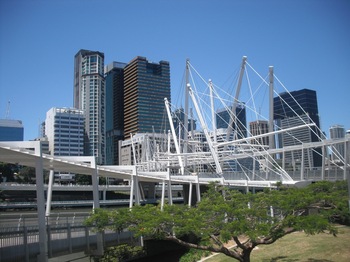
Brisbane, Australia. January 2010. 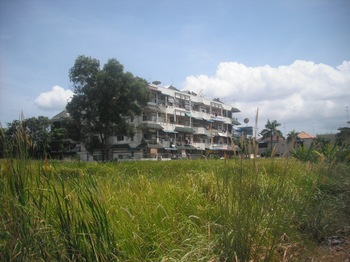
Batam, Indonesia. January 2010.
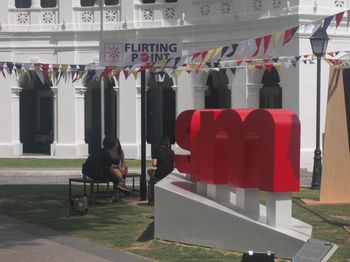
Singapore. January 2010.
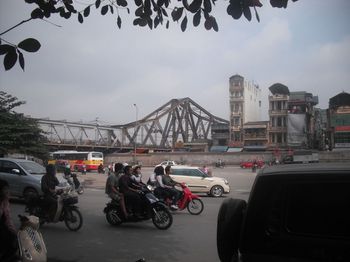
Hanoi, Vietnam. February 2010.

Malacca, Malaysia. February 2010.
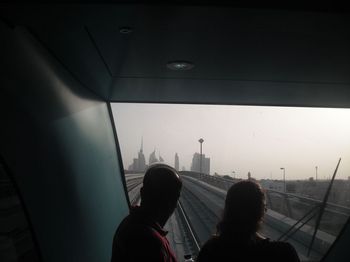
Dubai, United Arab Emirates. February 2010.

Valença do Minho, Portugal, March 2010.
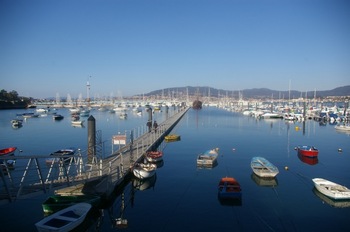
Baiona, Spain. March 2010.
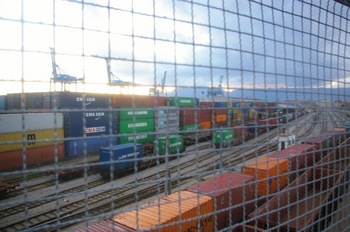
Rijeka, Croatia. March 2010.
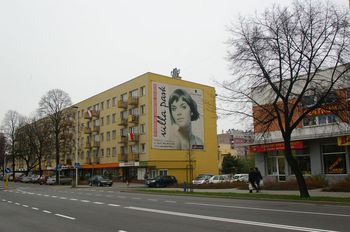
Rzeszów, Poland. April 2010.

Lviv, Ukraine. April 2010.

Paris, France. May 2010.

Salamanca, Spain. May 2010.

Sierra Nevada, Spain. June 2010.
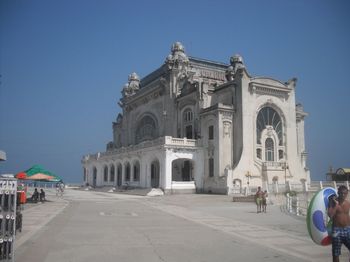
Constanta, Romania. July 2010.
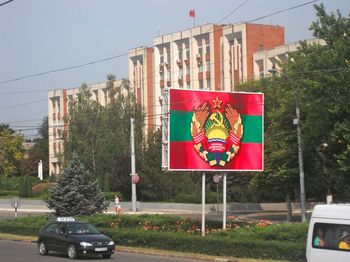
Tiraspol, Transnistria. August 2010.
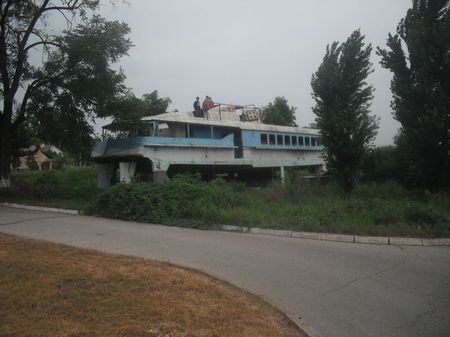
Bender, Dniester Valley security zone. August 2010.
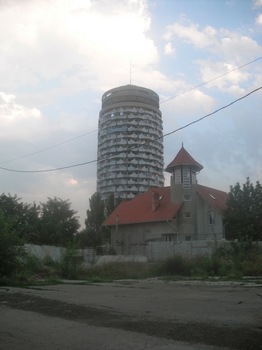
Chisinau, Moldova. August 2010.
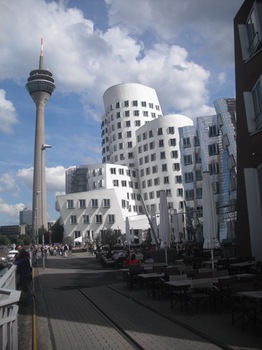
Düsseldorf, Germany. September 2010.

Abu Dhabi, United Arab Emirates. October 2010.
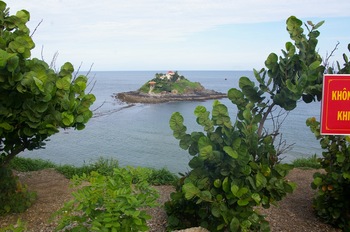
Vung Tau, Vietnam. October 2010.

Luang Prabang, Laos. October 2010.
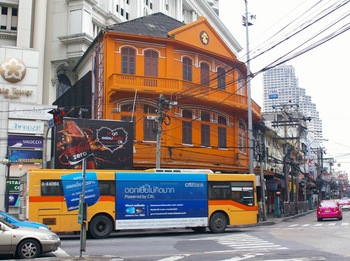
Bangkok, Thailand. October 2010.
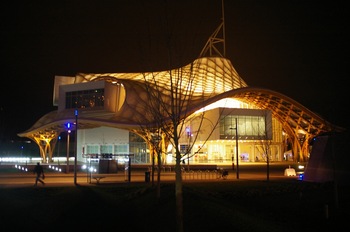
Metz, France. November 2010.

Bad Wimpfen, Germany. November 2010.
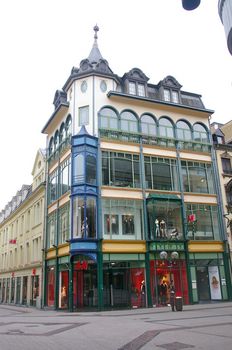
Luxembourg City. November 2010.
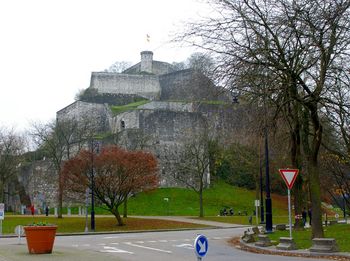
Namur, Belgium. November 2010.
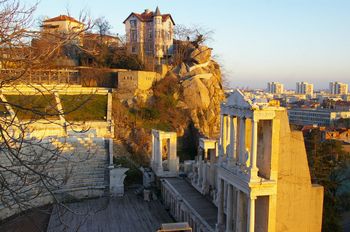
Plovdiv, Bulgaria. December 2010.
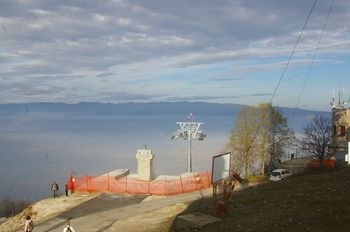
Skopje, Macedonia. December 2010.
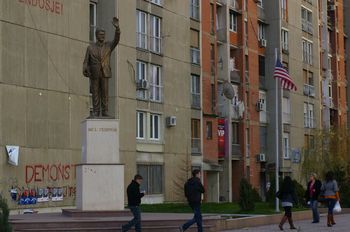
Pristina, Kosovo. December 2010.
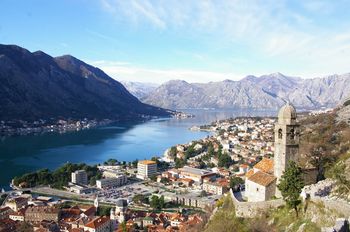
Kotor, Montenegro. December 2010.
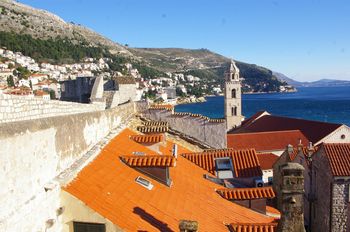
Dubrovnik, Croatia. December 2010.
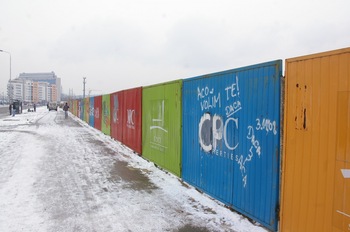
Belgrade, Serbia. December 2010.
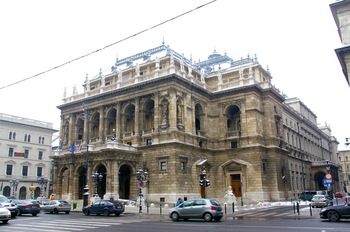
Budapest, Hungary. December 2010.
|
Who Are We? The Samizdata people are a bunch of sinister and heavily armed globalist illuminati who seek to infect the entire world with the values of personal liberty and several property. Amongst our many crimes is a sense of humour and the intermittent use of British spelling.
We are also a varied group made up of social individualists, classical liberals, whigs, libertarians, extropians, futurists, ‘Porcupines’, Karl Popper fetishists, recovering neo-conservatives, crazed Ayn Rand worshipers, over-caffeinated Virginia Postrel devotees, witty Frédéric Bastiat wannabes, cypherpunks, minarchists, kritarchists and wild-eyed anarcho-capitalists from Britain, North America, Australia and Europe.
|








































